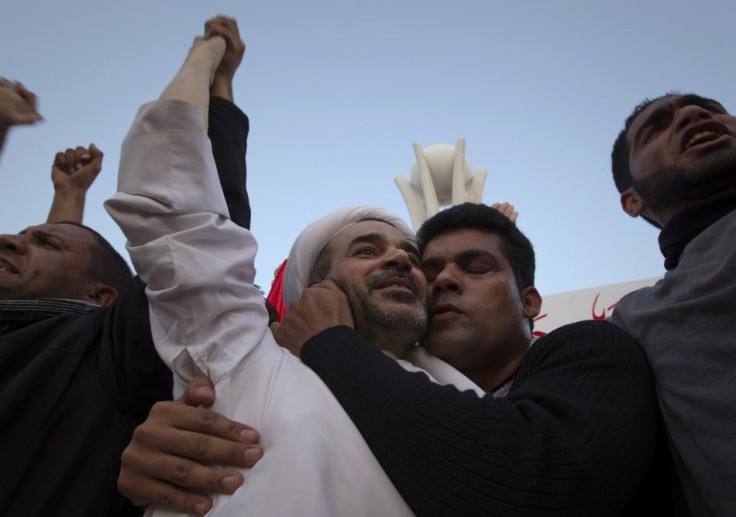Bahrain releases political prisoners to appease opposition

The Bahraini authorities – facing a massive anti-government movement – have released at least fifty political prisoners, including 23 Shia activists who had been detained on suspicions of plotting a coup plot.
The release was ordered by King Hamad bin Isa al-Khalifa king in a move to appease the demands of protesters.
The government also pardoned two others in exile, including opposition leader Hassan Mashaima, according to Agence France Presse.
Ibrahim Mattar, of the opposition Shia Wefaq party, told the Reuters that the releases were a positive move but that dozens still remain in jail.
The US, a key ally of Bahrain, welcomed the measures.
We commend the steps taken by King Hamad as well as Crown Prince Salman and others to restore calm to Bahrain, to allow peaceful demonstrations to take place, PJ Crowley, the U.S. state department spokesman, said.
Hillary Clinton, the US Secretary of State, said steps need to be followed by concrete actions and reform. There is no place for violence against peaceful protesters.
Gala Riani, an analyst at IHS Global Insight, said the moves to release Shia prisoners are an attempt by King to ensure that ongoing anti-regime protests recede.
“Their release, if confirmed, would be an attempt by the King to show goodwill toward Shias who have been at the forefront of ongoing anti-regime protests,” Riani said.
However, others remain unmoved by the ruler’s concessions.
Mohammed al-Tajir, a human rights lawyer representing some of the prisoners, told Al-Jazeera he didn’t think the release of prisoners would satisfy protesters, some of whom want not only democratic reforms, but also the removal of the ruling monarchs.
We are not sure even about the number of the released detainees,” he said. “We are expecting that more than 600 defendants were in jail and only some of these have been released since last night, including the 23 Shia activists.”
Al-Tajir indicated that as many as 200 dissidents might have been released since Tuesday night, and that they included political prisoners or clerics who are normally active in political or human rights issues.
Even Mattar added The main point we are waiting for is the initiative for political reform. Until now they didn't promise anything. If they don't say it, we are wasting our time.
Although Shias represent 70 percent of the country’s population, they forma minority in the parliament and have long complained of discrimination from the Sunni elite. The ruling al-Khalifa family (who are Sunni) has ruled Bahrain for 200 years.
The royal family is seeking dialogue with opposition groups to prevent any further bloodshed on the streets.
The analyst Riani cautioned that “the tactic of pardoning prisoners is one often used by the King in the past to placate unrest; on its own it will not suffice to ease tensions.”
Bahrain's leadership is still under pressure to address protesters' political concerns, Riani added.
“If it fails to do so, it will end up with a prolonged period of unrest on its hands,” she said. “On the other hand,
opposition groups have yet to put forward a consolidated set of demands to the leadership, something which could potentially weaken their bargaining position.”
Riani further warns that the current situation in Bahrain remains very risky, despite the apparent cooling of rhetoric.
“Having initially clamped down on the protests brutally, the monarchy has shifted to a conciliatory stance, allowing peaceful pro- and anti-regime protests to be held,” she said.
“Although tensions may have eased somewhat from last week, the current situation is unsustainable. The leadership will inevitably have to address anti-regime protesters' demands—although the latter have failed to put together a consolidated set of demands. This may limit their eventual ability to press the monarchy firmly on key issues, which in any case would be difficult to press through. However, without constitutional amendments and wider empowerment of Shias, the kingdom will be facing political troubles perennially.”
© Copyright IBTimes 2024. All rights reserved.




















